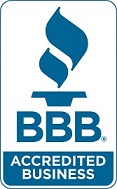Pastoral Thanatology Certification
The American Academy of Grief Counseling
Frequently asked Questions and Responses (FAQs)
 Welcome to the FAQs section for the American Academy of Grief Counseling. This area is provided to you as a source of information that may be more clarified, related to questions you may have in regards to our certification and our fellowship programs specifically for our Pastoral Thanatology Certification program. Information regarding recertification, as well as information about our online continuing education courses, is also provided. We highly recommend that you first thoroughly review all of the information on our website, under the main page for Pastoral Thanatology Certification and Fellowship. Access main page. If after reviewing all of the provided information and this FAQs section, any other questions may be addressed by completing our request for information form online (access info form). Thank you for your interest in the American Academy of Grief Counseling and our Pastoral Thanatology Certification program.
Welcome to the FAQs section for the American Academy of Grief Counseling. This area is provided to you as a source of information that may be more clarified, related to questions you may have in regards to our certification and our fellowship programs specifically for our Pastoral Thanatology Certification program. Information regarding recertification, as well as information about our online continuing education courses, is also provided. We highly recommend that you first thoroughly review all of the information on our website, under the main page for Pastoral Thanatology Certification and Fellowship. Access main page. If after reviewing all of the provided information and this FAQs section, any other questions may be addressed by completing our request for information form online (access info form). Thank you for your interest in the American Academy of Grief Counseling and our Pastoral Thanatology Certification program.
PASTORAL THANANTOLOGY BLOG: Please visit our Pastoral Thanantology interactive web blog. Our blog contains articles, news, events and information related the Pastoral Thanantology Counseling field.
What is Certification?
Response: certification is a voluntary process, which is provided by a well organized organization, that through its qualified advisory boards, develops comprehensive and quality standards for the practice of a type of specialty. The developed standards address high quality requirements for the practice of a certain specialty. The defined standards speak to educational and/or practice requirements, any required prerequisites, and the need to adhere to a defined code of ethics for the practice specialty. Certification is a voluntary process. It is different than any type of licensing. Certification is one means by which professionals may be publicly recognized as achieving a high level of education, knowledge base and practice skills for a certain healthcare related specialty. Certification also assists employer organizations and clients in their assessment of appropriate qualifications for candidates seeking positions in organizations and/or involved in private practices. It is commonly held, today, that certification by a very well organized professional organization, is fast becoming a "gold standard" for specialty practices. Certification testifies and provides a verification of defined educational requirements, adherence to a solid code of ethics, and in many instances prerequisites of practice experience for the practice of thanantology and closely related professional services.
What are the criteria/standards I will need to meet to achieve certification?
Response: The educational criteria and standards are well and clearly defined within our website. Please access our main page to preview these requirements. Access here.
May I apply for and be conferred certification in pastoral thanatology if I have been practicing this specialty in a clinical setting or private practice, with out they need to meet the educational requirements?
Response: No. The Board that oversees the development and approval of defined criteria and standards for certification will not consider only practice experience as meeting requirements in full. This decision was made as those who are already in counseling practices have varied and different experiences related to grief counseling and there is no insured uniformity that all who have practiced grief counseling have the same knowledge base and skills attainment. The evaluation of one's past practice experience in grief counseling is highly variable and subjective. As such, the Board has developed objective criteria/standards for the conferral of certification. For these reasons, practice experience without the attainment of education will not be considered as fulfilling criteria and standards for our certification.
Over the years, I have completed many seminars and continuing education courses related to grief counseling. Will these apply toward the education requirements for certification?
Response: Your past completed education may well qualified you as meeting the standards/criteria to apply for certification. To establish approval of your past education completion it is necessary that you submit, with your completed application, verification of all completed seminars and/or courses. This includes college-level courses and or continuing education courses. Once received, the administrative board and staff will review all of your submissions and verifications and make the decision as to whether or not your past education achievements meets the standards and criteria for certification. You will be notified by postal mail within 7 to 14 days regarding the decision of the acceptance or disapproval of any past education completions. In many instances, submitted verifications of education directly related to grief counseling are accepted. Most rejections occur because the education completed was not directly related to the practice specialty of pastoral thanatology.
What is the major practice focus of a pastoral thanatologist?
Response: a pastoral thanatologist is one who is very knowledgeable in the area of death and dying, specifically with a focus on working with dying clients and their spiritual, sometimes social needs, and works with clients and families experiencing normal & typical grief reactions. A pastoral thanatologist specifically works with the dying, while a grief counselor more often works with families/loved ones of the dying patient or the patient who is deceased. This is the distinction that the American Academy of Grief Counseling embraces and supports. The pastoral thanatologist is also a pastoral care provider. As such, pastoral thanatologist are involved in a "ministry" to the dying. While working with clients, they frequently represent a religious affiliation or an organization that supports a certain religious or spiritual belief. While many are clergy/ministers, many are also "lay people" working with clergy/ministers and/or churches or organizations to provide a focused spiritual care and spiritual support service to the dying. Inherent in their work is the provision of pastoral care and support to the families/loved ones of the dying. Pastoral thanatologists are not therapists and do not routinely perform any types of psychological therapies. They may, if properly trained work with the dying to teach them relaxation techniques, visualizations, etc to assist them in their spiritual practices. Overall, the pastoral thanatologist is a specialist in death and dying, and with that specialty provides pastoral care and support to the dying. Some pastoral thanatologist are health care professionals who work with the dying in a pastoral/spiritual care role. The role is a broad-based specialty and often is designed around the more specific religious affiliations or spiritual belief systems of the thanatologist and the clients served.
Where do pastoral thanatologists practice?
Response: they practice in many varied settings today. The services of pastoral thanatologists are in much demand throughout our country and throughout the world. Again, as provided in the information above concerning their roles, the majority are clergy/ministers, and/or church or religious organization affiliated. You may see pastoral thanantolgists working with clients in hospitals, nursing homes, hospices, community and social agencies, in the homes of the dying, etc. You may also see them presenting lectures to other professionals, church groups, community groups, etc. Some specialize in thanatology education, research, writing, etc. The role can be very unique to a particular religious or spiritual affiliation, or it can be designed more broadly to include a wide array of clients/patients who are dying. Pastoral thanatologists may also be seen participating in grief/bereavement support groups and after-care programs. The American Academy of Grief Counseling sees the role of the pastoral thanatologist as a needed and sought after component of over all health care delivery. We believe the role, with its focus on spiritual care and support is conducive to the growing models of health care that provide a more holistic approach to care and to dying.
Does the American Academy of Grief Counseling provide approval's for education programs whose graduates would qualify for being conferred certification?
Response: At this time we offer a full online continuing education curriculum which, when completed, qualifies for certification as a Pastoral Thanatologist, by the American Academy of Grief Counseling. Institutions which are offering their own programs in pastoral thanatology may, if they wish, submit their programs for review of approval by the American Academy of Grief Counseling. If the programs meet our standards for education content and hours of education provided, they may be also approved for those completing their programs to make application for certification. Any other programs which are approved will be posted as approved on our website.
WHAT IS THE PROCESS FOR ACHIEVING THIS CERTIFICATION?
Response: There is a two-phase process. In order to provide clear and sufficient information on the process we have developed a separate page that defines the process. You may access this information on the certification process at this link: click here.
How can I make application?
Response: Making application is an easy process. We provide on this website a link to a printable application. Those wishing to make application may access this link, print out the application form, completed it, and submit it to our office for review. You may access online applications at this link. Please note that incomplete applications will not be reviewed. All applications that are submitted must be complete and include all required documents and verifications as specified for review and consideration of certification conferral. Also, please note that candidates making application for Certification must have completed the education requirements as defined in our standards for Certification. If one has completed a program in pastoral thanatology, we will consider reviewing the curriculum of the program specifically for an applicant and make a decision on whether their completed program mirrors our standards and facilities our objectives for certification.
Once I have achieved certification, must I ever be recertified?
Response: Yes. A conferred certification has a period of 4 years. At the end of the four-year period the certification will expire. The American Academy of Grief Counseling provides a full program for recertification for its certified Pastoral Thanatolgists. Detailed information on the criteria to be recertified, after the three-year initial certification period, is provided on our website. Access here.
Our organization is sponsoring a one-day seminar on the topic of death and dying. Does the American Academy of Grief Counseling provide for program approvals for CEU credits?
Response: Yes. We do offer a full program for the approval of education courses, seminars, and other related learning activities related to the topics of death, dying, pastoral care of the dying, grief and bereavement, etc. If an application for approval is approved, then the sponsoring organization may declare on its CEU certificates that the program has been up reviewed and approved by the American Academy of Grief Counseling. More information is available on our website, access here.
Once certified as a pastoral thanatologist, I know I am required to achieve additional education related to death, dying, grief/bereavement and spiritual care, in order to qualify for recertification in the future. Does the American Academy of Grief Counseling offer any continuing education courses that I may take to meet my recertification requirements?
Response: We will be offering online continuing education courses in the near future which are appropriate to continuing education for certified pastoral thanatologists.
Call for Course Authors/Instructors




